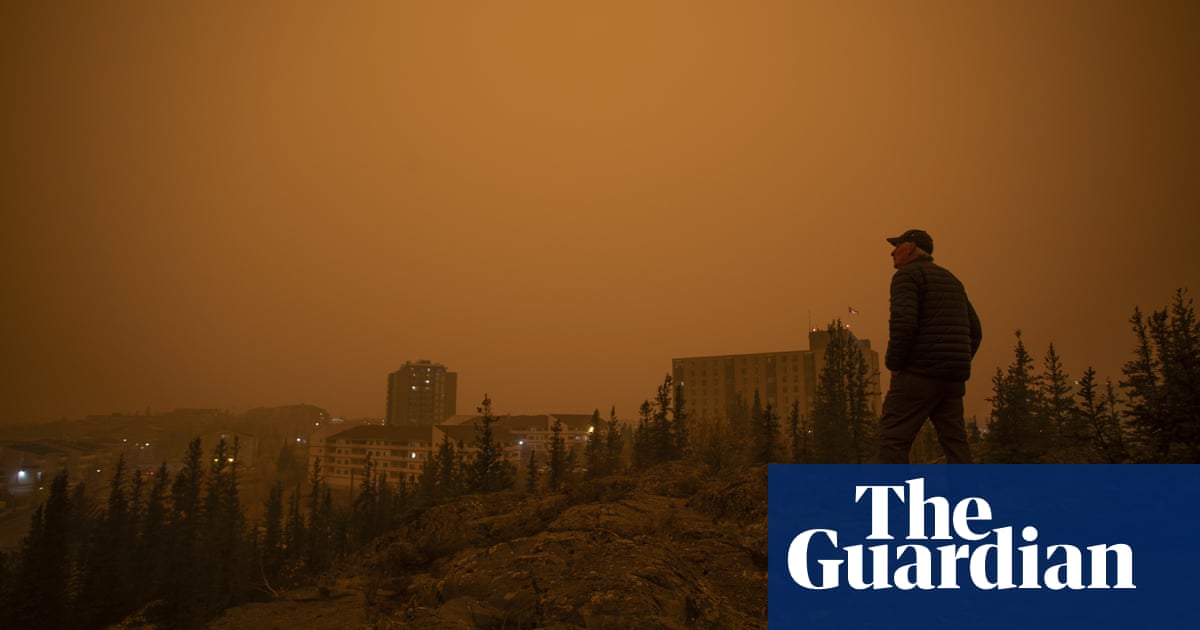- cross-posted to:
- [email protected]
- [email protected]
- cross-posted to:
- [email protected]
- [email protected]
Year of devastating wildfires meant Canadians were breathing worse air than southern neighbours for first time ever
Canada’s pristine air quality has been long praised by its citizens and prized by its government. But the thick plumes of smoke and miles of haze released by a record-breaking season of wildfires deteriorated the country’s air so much that it has fallen behind the United States for the first time on record, highlighting the wide-ranging and damaging effects of the blazes.
In its sixth annual World Air Quality report released on Tuesday, the Switzerland-based IQAir found overall air quality in Canada was worse than its southern neighbour. Of the 15 most polluted cities in the two countries, 14 were in Canada. Overall, Canada and the United States were ranked 93 and 102 for their air quality (Bangladesh, at No 1 was the most polluted).
The bulk of those communities were clustered in Canada’s western provinces, where wildfires engulfed the largest swaths of land.
A lot of smoke came up from the wildfires in the USA too.
They should put up a wall to block it.
this is true, but also, a shit-ton of canadian wildfires (that still haven’t been extinguished!) poured a fuckton of smoke over the US east coast (and all of canada’s east coast).
It’s mindboggling that winter never put these fires out.
I’m sadly suspecting that we’re all monumentally fucked. This summer is going to start next week (tulips are blooming!?) and stretch until 2025.
Removed by mod
I would have guessed the “Tar Sands” area being an incredibly massive source of air pollution, but I guess I wasn’t considering wild-fires role in the matter.
I was using masks in Korea before the pandemic because the air quality would occasionally get bad enough to warrant them. I downloaded an app to monitor the air quality so I’d know when to wear them, because it was regularly giving me a sore throat even when I couldn’t see or smell it.
After coming back to Canada, I thought I’d be done with them after the pandemic. Maybe wear them in crowded places while sick.
Then the wildfires happened on the other side of the country, and the app I forgot to uninstall gave me a warning.
The air quality was at the level where I’d been suggested to wear a mask even indoors with the windows closed.
This is the best summary I could come up with:
But the thick plumes of smoke and miles of haze released by a record-breaking season of wildfires deteriorated the country’s air so much that it has fallen behind the United States for the first time on record, highlighting the wide-ranging and damaging effects of the blazes.
The bulk of those communities were clustered in Canada’s western provinces, where wildfires engulfed the largest swaths of land.
The northern city, typically out of reach of major wildfires, made headlines over the summer when nearly 20,000 residents were forced to flee their homes as multiple fires converged upon the region.
Fires across Canada from British Columbia to Nova Scotia prompted waves of air quality warnings across the country, including major cities in Ontario – a region relatively unaccustomed to the sooty haze and eerie orange skies of wildfire smoke.
“We are seeing records set for everything from drought to snowfall to heat, and what we are hearing from experts is that this summer might be a very difficult one,” the provincial premier, David Eby, told reporters on Monday as he announced early preparations for the upcoming wildfire season.
In the neighbouring province of Alberta, officials also marked an early start to the fire season after a dry and mild winter.
The original article contains 672 words, the summary contains 207 words. Saved 69%. I’m a bot and I’m open source!
I’m surprised, usually Québecians spend all day inhaling their own farts.
Plus the tobacco smoke from the highest rate of tobacco smokers, which is probably a direct causation of lowest tax rate on cigarettes.
They think they’re French, that’s why they’re smoking.





